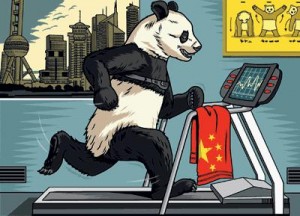In Harvard Business Review’s “The Products Chinese Consumers Want“, Max and Yuval reveal that, “China’s consumer goods market expanded rapidly over the past two decades primarily because of the growing number of first-time buyers” (Magni, Atsmon). A first-time buyer is defined as a consumer that purchases goods that they were unable to buy before. As a result, many industries in China are suffering; the majority of markets are slowing to a trickle. This dilemma stems from the companies’ inability to not only adapt, but cater to the market on all levels.
Companies in China are failing to retain and increase revenue figures simply because of their “monolithic country-level strategy“(Magni, Atsmon) approach. In short, Magni and Atsmon’s argument educates us that companies must pinpoint and capitalize on the best opportunites available in order to stay in business. Although this fact seems blatantly
obvious, why is it that companies continue to suffer? Corporate greed, perhaps? In my opinion, this is the result of the viscous cycle of success and ignorance. As businesses confidently implement their lucrative strategies in China’s market, they become blinded to new opportunities, such as the market of developing regions. It is vital that businesses prioritize growth opportunities, deploy limited resources, and ultimately decide if it is profitable to pursue or pull out of the market.
